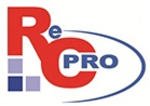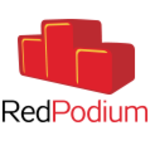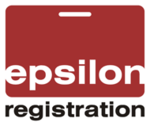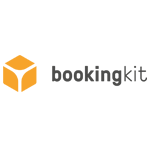Yes, most registration software may be accessed from numerous devices and platforms. This implies that customers can use the software on a variety of devices, including PCs, tablets, and smartphones, as well as operating systems such as Windows, Mac OS, and Linux. This adaptability provides consumers with a consistent experience and guarantees that registration is simple, regardless of the device or platform they use.
List of 20 Best Registration Software
Tikkl - an advanced event management software leveraging AI to elevate attendee experience and event success. Ideal for all event formats - in-person, virtual, and hybrid, Tikkl boosts registrations, engagement, and revenue, ensuring a seamless hosti...Read More Tikkl
Prekindle is the top event management solution for your organization. Seamlessly integrate and enjoy unbeatable customer support, along with powerful marketing tools for a stress-free and budget-friendly event planning experience. Our intuitive platf...Read More Prekindle
HostEvent is a event management tool for corporate, training, and personal events. Featuring real-time analytics and seamless attendee participation, HostEvent streamlines event planning. Within minutes, create customized event apps on mobile devices...Read More HostEvent
EventNut is a event registration platform designed to enhance the experience of both event organizers and attendees. With cutting-edge features like integrated badge printing, EventNut provides a seamless solution for creating impressive event websit...Read More EventNut
ReCPro is a registration software that streamlines the registration process, enhances social media engagement, and produces customized reports. Our cutting-edge platform is equipped with a responsive customer service team and flexible features to mee...Read More ReCPro
RegOnline is a top-notch event management and registration platform designed for small to medium-sized events. This feature-rich and user-friendly cloud-based software gives you complete control over all aspects of your conferences and gatherings. It...Read More RegOnline
A Online Registration System is a tool for streamlined event planning and ticketing. From conferences and trade shows to exhibitions and meetings, our user-friendly software simplifies the entire process. With its automated features, including mass e...Read More Online Registration System
Registration123 is a reliable software specifically created to streamline event registration processes. With its user-friendly interface and robust features, it offers a seamless and convenient experience for both event organizers and attendees. It i...Read More Registration123
ClickDeploy the Salesforce deployment solution that revolutionizes your DevOps process. Our intuitive tool simplifies the release procedure with features such as automated deployments, version control, and instant change tracking. Say farewell to mis...Read More ClickDeploy
Event Tech Suite is a software for seamless event management. Our all-in-one platform simplifies the entire event process, from online registration to in-person check-in. With user-friendly tools and customizable features, our software streamlines lo...Read More Event Tech Suite
Glue Up is a all-in-one solution for simplifying your organizations membership management, event organizing, and email marketing. Its personalized renewal processes, automated alerts, seamless social media integration, and advanced CRM capabilities w...Read More Glue Up
ASAP is a software solution for educational institutions. This powerful tool handles all administrative tasks, from registration to reporting, with ease. By streamlining processes, ASAP increases efficiency, freeing up organizations to focus on provi...Read More ASAP
GolfRegistrations is a golf tournament management software designed to streamline the promotion, registration, and management of golf events. With our robust platform, you can effortlessly monitor progress, generate reports, register golfers, sell me...Read More GolfRegistrations
RedPodium Race Registration is solution for effortless race and endurance sports management. Utilizing features like real-time analytics, peer-to-peer fundraising, and streamlined merchandise sales, organizing your event has never been smoother. Say...Read More RedPodium Race Registration
Enrollware is a web-based class registration system that provides superior management and registration features. Its cloud-based training center is available round-the-clock, accessible from any web browser. This highly adaptable and cost-effective s...Read More Enrollware
Epsilons EReg is a registration software that operates on the cloud, ideal for streamlining event management. Its advanced capabilities and top-notch customer service ensure smooth communication and coordination between organizers and attendees with...Read More EReg
iClassPro is a top-performing cloud-based registration management software designed specifically for school owners. This easy-to-use solution optimizes the management of students, coaches, analytics, billing, payments, reporting, and communication. W...Read More iClassPro
Discover the efficiency of i-Signup, the hassle-free solution for online event and class registrations. Seamlessly integrate secure PayPal payments for swift processing. This user-friendly software streamlines your sign-up process, making registratio...Read More i-Signup
Bookwhen solution for simplified online bookings. Our user-friendly platform eliminates the hassle of complicated scheduling and boosts efficiency for your business. With seamless integration, swift payments, and dedicated support, Bookwhen makes it...Read More Bookwhen
Bookingkitis a solution for effortlessly managing your tours, activities, and attractions. Our innovative software is designed to optimize your operations, boost revenue, and enhance customer satisfaction. Join the thousands of businesses already ben...Read More Bookingkit
Learn More About Registration Software
- What Is Registration Software?
- What Are The Recent Trends In Registration Software?
- Benefits Of Using Registration Software
- Important Factors To Consider While Purchasing Registration Software?
- What Are The Key Features To Look For In Registration Software?
- Why Do Businesses Need Registration Software?
- How Much Time Is Required To Implement Registration Software?
- What Is The Level Of Customization Available In Registration Software?
- Which Industries Can Benefit The Most From Registration Software?
- Conclusion
What Is Registration Software?
Registration software is an invaluable resource for businesses and organizations that must manage multiple registrations, whether for events, courses, memberships, or any other form of registration process. It is a digital solution that streamlines and automates the registration process, hence removing the need for manual paperwork and data entry.
Registration software allows users to easily construct configurable registration forms, securely collect and store participant information, and track registrations in real time. This ensures a smooth and quick registration process, saving time and resources for both the business and the registrants. One of the important benefits of registration software is the ability to take online payments, which allows registrants to complete their payment in a single transaction.
This reduces the possibility of payment problems and delays, ensuring that registrations are confirmed and fees are collected on time. Another feature of registration software is its ability to report and analyze data. It gives consumers vital information and data about registration trends, attendance rates, and revenue generated. This data can be utilized to inform future planning and decision-making, helping firms to improve and optimize their registration procedures.
Furthermore, some registration software provides marketing and communication options, such as email and SMS notifications, to keep registrants updated on future events or deadlines. It also enables targeted communication and individualized messages, which improves the overall consumer experience.
What Are The Recent Trends In Registration Software?
Recent technological improvements have had a tremendous impact on registration software. As more businesses transition to online and virtual events, registration software has become an essential tool for managing participants and data.
Buyers should be aware of the following new trends in registration software:
1. AI-Powered Features: Many registration software vendors are integrating artificial intelligence (AI) into their platforms. This technology can evaluate data and forecast outcomes, providing useful insights into attendance behavior and preferences. It can also help with things like personalised suggestions and chatbots for customer care.
2. Data Security: With the rise of virtual events and online registrations, data security has become a primary priority for both consumers and vendors. To protect sensitive attendee information, registration software now includes additional security features like encryption, secure payment processing, and two-factor authentication.
3. Mobile-Friendly Design: As users rely more on their mobile devices, registration software has evolved into a mobile-friendly format. Attendees may now simply register for events, obtain tickets, and pay using their cellphones, making the registration process more convenient and seamless.
4. Integrations: Registration software is no more a stand-alone product; it now works with other event management tools including CRM, marketing automation, and ticketing systems. This enables greater data sharing and a more efficient process for event organizers.
5. Contactless Check-Ins: With the global epidemic, contactless check-ins have become essential at events. Many registration software suppliers now include technologies such as QR code scanning and facial recognition to ensure a secure and touch-free check-in experience.
6. Customisation: Attendee customisation has become a top priority in the event sector, and registration software is no exception. Using data tracking and analytics, organizers can now provide participants with individualized experiences depending on their interests and behavior.
7. Multi-Language Support: To reach a global audience, registration software now supports multiple languages. This feature allows participants to use the registration website in the language of their choice, making the process more user-friendly and accessible.
Benefits Of Using Registration Software
Registration software is a strong tool for handling event, class, and membership registrations. This program offers numerous benefits to businesses and organizations, making it an excellent investment for anyone wishing to expedite their registration process and increase overall efficiency. One of the most significant advantages of employing registration software is the ability to automate the registration process.
Manual registration is time-consuming and error-prone, while registration software automatically collects and organizes all of the information. This not only saves time, but also removes the possibility of human error, resulting in accurate and dependable data. In addition to automation, registration software offers a centralized platform for managing registrations.
This implies that all of the relevant information and data are kept in one location, making it conveniently accessible to both administrators and registrants. It also provides for easy tracking of registrations, payment statuses, and other key facts, resulting in a comprehensive picture of the registration process. Furthermore, registration software provides configurable registration forms, allowing businesses and groups to collect specific information related to their event or program.
This not only makes the process more efficient, but it also helps to gather useful insights and data for future marketing and planning initiatives. Another key advantage of adopting registration software is the simplicity it provides for registrants. Registrants can quickly sign up for events or programs from the comfort of their own homes, thanks to the option of registering online or by mobile app.
This not only simplifies the process, but also enhances the likelihood of more people registering. Finally, registration software includes features such as automated confirmation emails, payment processing, and reporting capabilities, which improve the overall efficiency and professionalism of the registration process. Furthermore, many registration software packages include marketing features that enable businesses and organizations to reach a larger audience and successfully promote their events or programs.
Important Factors To Consider While Purchasing Registration Software?
Before purchasing registration software, you should thoroughly assess your objectives and goals.
Here are some crucial aspects to consider when choosing the correct registration software for your organization:
1. Features And Functionality: The first and most important aspect to analyze is the software's features and functionality. Make a list of your organization's special registration requirements, such as online payment processing, attendee management, or configurable registration forms. Then, compare these needs to the capabilities provided by several software solutions to determine the best fit.
2. User Experience: Whether you're an event planner or an attendee, you must consider the user experience when using the software. Choose software with an intuitive, user-friendly interface that is simple to navigate and understand. This will make it easier for you, as well as your registrants, to use.
3. Modification Options: Because each organization has its own distinct branding and style, it's critical to select registration software that allows for modification. Look for solutions that allow you to personalize registration pages with your logo and colors, as well as alter the registration form to meet your specific requirements.
4. Pricing: It is critical to analyze the cost of the program and how it will fit into your budget. Some software requires a one-time price, while others use a subscription-based pricing model. Also, keep an eye out for any hidden fees, such as additional payments for integration or support.
5. Support And Training: As with any new software, you and your team will need help getting started. Look for software that has extensive customer support and training materials, such as videos, articles, or live chat.
6. Integrations: Depending on your organization's requirements, your registration software may need to link with other products or platforms that you already use. Make that the program works with other systems, such as CRM or event management software.
7. Mobile-Friendliness: As more people use smartphones for everyday tasks, it's critical to use registration software that is mobile-friendly. This means that the program should have a responsive design that adjusts to multiple screen sizes, making it simple for consumers to register using their mobile devices.
By taking these aspects into account, you can select the best registration software for your organization's needs while also streamlining the registration process for you and your attendees. Take the time to explore and compare several possibilities to determine the greatest fit for your firm.
What Are The Key Features To Look For In Registration Software?
Registration software is a crucial tool for businesses, organizations, and events who want to manage registrations smoothly. However, with so many options on the market, selecting the correct registration software can be intimidating.
To help you make an informed decision, below are the essential elements to consider while choosing registration software.
1. Online Registration: The capacity to allow online registration is an essential aspect of registration software. This enables your attendees to register and pay for their tickets or participation from the convenience of their own computer or mobile device, saving time and removing the need for physical documentation.
2. Customizable Forms: Look for registration software that enables you to generate personalized registration forms with fields specific to your event or group. This not only simplifies the registration process, but also allows you to collect precise information from your participants.
3. Payment Processing: The registration software should have a secure payment processing system that accepts a variety of payment methods, including credit/debit cards, PayPal, and offline transactions. It should also allow you to create several pricing options, discounts, and promotional coupons for different types of attendees.
4. Data Management: A good registration program should have strong data management capabilities, such as the ability to export attendance data, generate reports, and interface with other systems. This ensures that all of your attendance information is organized and easily available for future reference.
5. Automated Communications: Save time and effort by using registration software that includes automated communication features. This allows you to automatically send confirmation emails, updates, and reminders to participants.
6. Mobile Compatibility: Given the growing popularity of mobile devices, it is critical to select registration software that is mobile-friendly. This means that guests may simply register for and obtain their tickets or event information using their cellphones.
7. Onsite Check-In: If your event requires on-site registration, search for registration software that has a mobile check-in option. This enables you to check in attendees by mobile device, making the process faster and more efficient.
8. Customer Support: Choose a registration software vendor that provides good customer service, whether via email, chat, or phone. This ensures that you have a trusted source to turn to in the event of any technical difficulties or questions.
By taking these main aspects into account, you can pick the registration software that best matches your demands and allows you to efficiently handle the registration process for your event or group.
Why Do Businesses Need Registration Software?
Registration software is an indispensable tool for businesses of all sizes and industries. It simplifies and streamlines the registration process for events, classes, workshops, and other activities. But why do businesses need registration software, and what are the benefits?
Let us investigate in depth.
1. Efficient And Time-Saving: Registration software allows organizations to reduce manual registration processes and paperwork, which can be time-consuming and error-prone. The platform automates the entire registration process, from data collection to payment processing, saving firms significant time and resources.
2. Easy Registration: Registration software has an easy-to-use interface that allows clients to sign up for events or programs without hassle. It enables businesses to construct unique registration forms, allowing participants to enter their information and pay for the event in a few simple clicks.
3. Maximize Registrations: By providing online registration choices, businesses may reach a larger audience and increase registrations. Businesses that use a software system can accept registrations 24 hours a day, seven days a week, boosting the likelihood that their events or classes will be full.
4. Manage Data Effectively: Registration software enables organizations to securely collect and retain participant information. This data is easily accessible and organized, allowing firms to monitor registration numbers, demographics, and preferences. This vital information can then be used to create targeted marketing efforts and plan future events.
5. Payment Processing: Registration software interfaces with payment gateways, enabling businesses to securely handle online payments. This reduces the effort of manually collecting and tracking payments, making it easier for both businesses and participants.
6. Personalized Communication: Communication is essential for any successful event. Registration software enables organizations to send individualized emails to attendees, offering important event information, updates, and reminders, resulting in a more seamless experience for all.
7. Multilingual Support: Registration software supports multiple languages, making it easier for non-English speakers to register for events or programs.
How Much Time Is Required To Implement Registration Software?
The time required to establish registration software varies according on the program and your organization's size and complexity. However, on average, the implementation phase can last from a few weeks to several months. During the beginning stages, you will need to identify your registration system requirements and goals, collect data from various sources, and collaborate with your software vendor to tailor the program to your specific needs.
This process can take several weeks or months. Once the program has been modified, you will need to do comprehensive testing to confirm that it works properly and satisfies your requirements. This testing process might last anywhere from a few weeks to a couple of months, depending on the complexity of your system. Finally, the implementation process entails delivering the program to your users, which can be done gradually or all at once.
This procedure consists of moving data, training users, and making any necessary changes. The length of this phase will be determined by your organization's size and number of users. Overall, the installation time for registration software might range from a few weeks to several months. It is critical to collaborate closely with your software provider and have a clear plan in place to ensure a smooth and effective implementation.
What Is The Level Of Customization Available In Registration Software?
When looking for the best registration software for your company or group, one essential consideration is the level of customization offered. This refers to the capacity to customize and adjust software to meet your individual demands and requirements. Registration software customization options can differ widely between providers.
Some may provide a one-size-fits-all solution, but others may enable substantial customization to produce a genuinely unique and bespoke experience. The registration process is an important factor to consider when determining the level of customisation. Can you customize the registration form to capture the information you require from your participants? This might range from basic contact information to more particular data about your event or organization.
The more options the program provides for developing and customizing registration forms, the more personalized your registration process may be. Another crucial factor to consider is branding. Can you change the look and feel of the registration page to reflect your brand identity? This can involve adding your logo, selecting color palettes, and changing the layout of the page.
Being able to brand your registration page not only gives your company a more professional image, but it also improves the entire user experience for your attendees. In addition to customizing the registration process, certain applications may allow you to add custom fields or tags for data collecting and segmentation. This provides for a higher level of customisation when organizing and managing participant information.
It's also critical to examine the degree of back-end customisation accessible. Can you tailor reports and analytics to include specific metrics and data points? This can help you acquire useful information and make more educated decisions about how to improve your registration process. Finally, the level of customization offered in registration software has a significant impact on the user experience for both you and your attendees. It is critical to thoroughly assess the level of customisation provided by each provider to verify that it suits your specific demands and objectives.
Which Industries Can Benefit The Most From Registration Software?
Registration software is an effective tool that can aid a variety of sectors. This adaptable program has a wide range of features and capabilities that can help to streamline registration processes, improve organization, and increase overall productivity. If you are thinking about investing in registration software for your company or organization, you should first determine which industries will profit the most from its use.
Let's explore, we'll look at the top industries that can benefit the most from registration software.
1. Event Management: From conferences and trade exhibits to workshops and seminars, event management is a fast-paced sector that necessitates accurate tracking of attendance and registration information. Registration software allows event organizers to manage registrations, track attendance, and collect fees in a seamless and effective manner.
2. Education: Registration software is extremely valuable to educational institutions including schools, colleges, and universities. It streamlines the registration process for students and enables schools to track enrollment statistics, course options, and student information. This improves communication with kids and parents while reducing administrative workload.
3. Healthcare: Registration software can help manage patient visits, collect medical history, and securely store personal information. This saves time and increases patient satisfaction by eliminating wait times and the need for paper forms.
4. Non-Profit Organizations: Non-profit organizations frequently rely on events and fundraisers to further their mission. Registration software can assist these groups in efficiently managing event registrations, collecting donations, and keeping track of donor information.
5. Sports And Recreation: From sports leagues and fitness courses to leisure events and camps, registration software may make the registration process easier for participants. It also includes features like scheduling and team building, making it an invaluable tool for sports and entertainment enterprises.
6. Government Agencies: Government agencies frequently deal with a large number of registrations, whether for voting, permits, or licenses. Registration software can help streamline these processes, making them more efficient for both government workers and citizens.
7. Professional Organizations: Registration software can help trade associations and unions manage member registrations, collect dues and fees, and organize events and conferences.
Conclusion
To summarize, selecting the appropriate registration software for your business or organization is critical for speeding the registration process and improving the overall user experience. Before making a purchase, conduct thorough research and examine your individual requirements, budget, and desired characteristics. Also, read reviews and evaluate various software solutions to ensure you receive the greatest fit for your firm.
By following these principles and consulting our complete buyer's guide, you can confidently choose the registration software that will best fit your needs and help you reach your objectives. Happy registration!
Registration Software FAQ's
Can Registration Software Be Accessed Across Multiple Devices And Platforms?
Is Registration Software Future-Proof And Adaptable To Emerging Technologies Like AI, Blockchain Or IoT?
Yes, most modern registration software is designed to be future-proof and adaptable to upcoming technologies such as artificial intelligence, blockchain, and the Internet of Things. This means that when these technologies expand and are implemented into numerous businesses, registration software will be able to keep up and effortlessly incorporate them.
This ensures that consumers have access to the most recent technological breakthroughs and can adjust their registration processes accordingly. Registration software, with its flexibility and versatility, is a beneficial investment for firms seeking to keep ahead of the ever-changing digital landscape.
Is There A Free Trial Offered To Assess Registration Software Before Committing?
Yes, many registration software suppliers provide a free trial period, allowing companies to evaluate the product before making a purchase. Users can explore the software's features, user interface, and overall functionality. Free trials often last 14 to 30 days and require users to give basic information such as their email address and organization name. Some software companies also provide tailored demos to highlight the software's capabilities.
Does Registration Software Offer Data Security Features And Meet Regulatory Compliance Standards?
Yes, registration software includes comprehensive data security safeguards to protect sensitive information and ensure regulatory compliance. These features could include encryption, user authentication, and access controls.
Furthermore, trustworthy registration software vendors verify that their platform complies with applicable requirements, such as GDPR and PCI-DSS. This ensures that user data is captured, stored, and handled securely and compliantly, providing piece of mind to both software users and event participants.
Can Registration Software Integrate Seamlessly With Existing Tools And Platforms?
Yes, most registration software is intended to work easily with other tools and platforms, such as CRM systems, event management platforms, and email marketing software. This enables the smooth and quick movement of data between systems, making it easier to manage registrations and track attendee information. Furthermore, many registration software vendors include customization options to ensure a smooth interaction with your specialized tools and platforms.






















